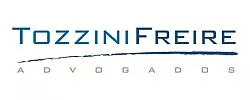On June 18, 2013, the Brazilian Government, through the Ministry
of Mines and Energy, released the final proposal of the New Mining
Framework. The long-awaited proposal will be submitted to the
National Congress via Bill of Law.
The main changes proposed by the Government are:
(i) The creation of the National Council for Mining Policy (CNPM,
in Portuguese), in order to assist the President in strategic
decisions;
(ii) Concessions will be granted through bidding processes, based
on a sole title for exploration and mining with a 40-year term,
extendable for 20 years, and with an occupation tax and a minimum
investment. According to the Federal Government, such measure
should reduce speculation. Mineral aggregates (clay, sand, gravel
etc.), mineral water and others are exempted. This is an absolute
change in the current regime, more specifically in regard to the
Priority Right and to the possible mineral exploration until the
end of the mine life;
(iii) The creation of a new agency named the National Mining
Agency (ANM, in Portuguese), with greater management and financial
autonomy and basing its decisions in collegiate rulings;
(iv) Change (and simplification, according to the Minister of
Mines and Energy) in the mining tax (CFEM – Financial
Compensation for the Mineral Explorations, the mining royalties),
which will be calculated over the gross revenue with a maximum rate
of 4%. The distribution of tax revenues among Municipalities (65%),
States (23%) and the Federal Union (12%) will remain the same. The
Federal Government estimates that annual tax revenues will
double.
President Dilma Rousseff and Minister of Mines and Energy Edison
Lobão emphasized that the transition rules included in the
proposal ensure that investments previously made in the mineral
sector under the current regime will be respected.
TozziniFreire, represented by its partner Luiz Fernando Visconti,
head of the Mining industry group, attended the official conference
held by the Brazilian Presidency when the proposal was
launched.
The content of this article is intended to provide a general guide to the subject matter. Specialist advice should be sought about your specific circumstances.


